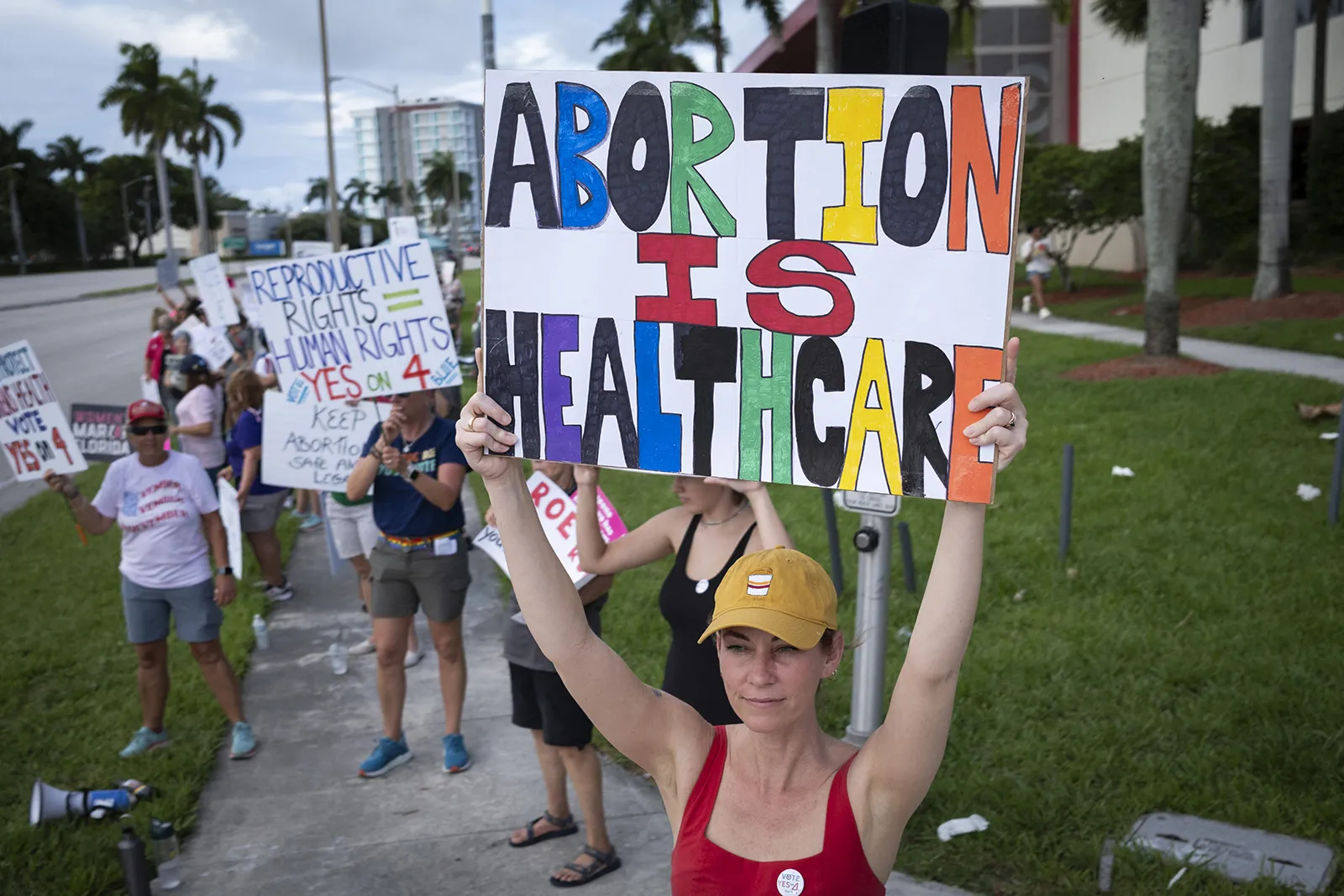Florida’s Abortion Law Faces Major Setback as Voters Reject Rights Amendment
In a significant turn of events, Florida voters have rejected Amendment 4, a proposed measure aimed at enshrining abortion rights in the state constitution. The amendment, which sought to allow abortions up to the point of fetal viability—typically around 24 weeks—failed to meet the required 60% approval threshold, despite garnering majority support. This outcome marks a notable setback for reproductive rights advocates and a victory for Republican Governor Ron DeSantis, who actively campaigned against the measure.
The current Florida abortion law is starkly different from what Amendment 4 proposed. Under existing legislation, abortions are banned after just six weeks of pregnancy, a timeline that many women may not even be aware of their pregnancy. The rejection of Amendment 4 highlights the ongoing struggle for reproductive rights in a state that has seen a significant tightening of abortion access in recent years.
The political context surrounding this amendment is crucial. Governor DeSantis, who is seen as a potential presidential candidate, has positioned himself as a staunch opponent of abortion rights. His administration’s campaign against Amendment 4 included the use of state resources, which has drawn criticism and legal challenges. The American Civil Liberties Union (ACLU) has filed a lawsuit alleging that the state misused taxpayer funds to promote its anti-amendment stance, thereby violating electoral fairness.
Historically, the defeat of Amendment 4 is significant. It marks the first time since the U.S. Supreme Court overturned Roe v. Wade in June 2022 that a pro-abortion rights initiative has failed at the ballot box in any state. This outcome raises questions about the future of reproductive rights in Florida and beyond, especially as other states, such as Colorado and New York, successfully passed measures to expand abortion access during the same election cycle.
Despite the rejection of Amendment 4, public sentiment appears to be at odds with legislative outcomes. An NBC News exit poll revealed that 64% of Florida voters believe abortion should be legal in all or most cases. This disconnect between public opinion and the legislative landscape suggests that advocates for reproductive rights may need to reassess their strategies moving forward.
The campaign tactics employed by the DeSantis administration have also come under scrutiny. Critics argue that the use of state resources for political campaigning is unethical and undermines the democratic process. The controversy surrounding these tactics may have broader implications for future elections and policies in Florida, particularly as progressive initiatives continue to face challenges at the ballot box.
The failure of Amendment 4, alongside another measure to legalize recreational marijuana, reflects a broader trend of diminishing support for progressive initiatives in Florida. This trend could have lasting effects on the state’s political landscape, potentially impacting future elections and the policies that emerge from them.
Public reactions to the amendment’s failure have been mixed, with many young voters expressing disappointment. Concerns about women’s rights and reproductive choices are at the forefront of their minds, and the rejection of Amendment 4 has left many feeling disheartened about the future of abortion rights in Florida. As the state grapples with these issues, the voices of young voters may become increasingly important in shaping the conversation around reproductive rights.
In conclusion, the rejection of Amendment 4 represents a significant setback for abortion rights advocates in Florida. As the state continues to navigate the complexities of reproductive rights, the disconnect between public sentiment and legislative outcomes raises important questions about the future of abortion access. With ongoing legal challenges and a politically charged environment, the fight for reproductive rights in Florida is far from over. The implications of this setback will likely resonate in future elections, as advocates and voters alike seek to address the pressing issues surrounding women’s rights and reproductive choices in the state.






Leave a Comment